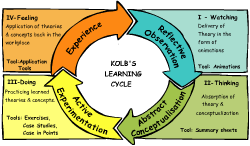
Leadership Development Program
Stratecent Consulting's Career and Leadership Development Program CLDP, is a comprehensive, result-oriented leadership development programme designed to develop overall leadership potential in managers across rungs and across industries.
-
Introduction
Stratecent Consulting's Career and Leadership Development Program is built on the lines of some of the very best Corporate Leadership Development Programs around the world. It has been conceptualized, developed and run exclusively by Stratecent Consulting. The CLDP is not just a skill building program. It is a transformational program.
-
The idea behind the CLDP was to create an endeavour where participants improved their current as well as future capability in order to consistently deliver results in their current and future roles and responsibilities.
-
The CLDP is a comprehensive, result-oriented leadership development programme designed to develop overall leadership potential in managers across rungs and across industries.
-
The CLDP, as a program, is designed to build skills at the individual level as well as at the group level.
-
It includes, not just an exchange of knowledge, but also a great deal of practical, hands-on experience.
-
It has a large clinical and practice component which enables participants to practice what they learn. It comprises of knowledge exchange, reading articles and working on practical assignments involving problem solving on a continual basis.
-
The Career and Leadership Development Program also integrates games, exercises, role plays, simulations and activities that help teams bond together and also enhances individual excellence.
-
All role plays are based on real-life business problems, and require consistent efforts, both at the individual and group level, and which enhance adult learning, retention and application of learned skills on a day to day basis.
-
Learning Methodology
-
Typical adult learning theories encompass the basic concepts of behavioral change and experience. Most learning theories point to three keys to transformational learning: experience, critical reflection and development.
-
CLDP Workshops are , engaging, delivered with the effective use of animations, and highly experiential, since learning is maximised through practice and reflection.
-
The eCLDP andragogy is based on Kolb's Learning Cycle.

-
CLDP content is a combination of practical business insight, from years of first hand consulting expertise, theories from the best sources in the world, and practical application tools, meant to enhance learner understanding, application and retention of skills. All these factors make the CLDP extremely high quality. Participants who have gone through the CLDP" workshops have exhibited a pronounced improvement in their on-the-job skills and overall performance as compared to their peers who have not undergone this program.
-
The CLDP is also industry endorsed through its extensive network of ICP clients.
-
 Increased Confidence
Increased Confidence  Enhanced Knowledge
Enhanced Knowledge  Increased Skills and Capability
Increased Skills and Capability  Ability to Reason and Argue on a Logical
Ability to Reason and Argue on a Logical
Premise Practical Problem Solving using Various
Practical Problem Solving using Various
Tools Objective Decision Making
Objective Decision Making  Ability to Manage and Work in a Team
Ability to Manage and Work in a Team  Ability to deliver Performance Targets
Ability to deliver Performance Targets
-
All workshops comprise of complex skills, customized to our clients industry and individual businesses, delivered by the use of classroom based training combined with e-learning access for pre-workshop preparation, and post workshop revision. The high clinical and practice component make complex skills easy to retain and apply in the workplace. To know more, or to understand how we can maximize your training ROI, by tailoring high-end skills to your specific needs and objectives, contact us
Kolb's Learning Cycle is based upon experiential learning theory which views learning as a process involving continuous modification of ideas and habits as a result of experience. The eCLDP includes summaries, real-life business case studies, quizzes, games and articles that enable continuous Experiential Learning. Interactive application tools and exercises reinforce learning.
Value Addition
Benefits of the CLDP
-
Skills Covered
-
 Consultative Selling
Consultative Selling
 Problem Solving
Problem Solving  Systems Thinking
Systems Thinking  Strategy
Strategy  Balanced Scorecard
Balanced Scorecard  Negotiation
Negotiation  Lateral Thinking
Lateral Thinking  Six Sigma
Six Sigma  Teams
Teams Business Performance Measurement
Business Performance Measurement Strategy Mapping
Strategy Mapping
-
-
Negotiation
If you want to trade, you have to negotiate. The alternative is to accept what you have been offered. There are many opportunities to negotiate better deals and terms, however these chances are often missed because neither party makes it clear that negotiating is an option. Many people wrongly assume that nothing is negotiable unless the other party indicates that this is the case, a more realistic view is that everything is negotiable.
-
Problem Solving
We regularly make mistakes of judgment based on faulty analysis. If we are to solve problems effectively, we must learn objective analysis and consider alternatives. Failure to consider alternatives is the most common cause of flawed analysis. Through an in-depth understanding of mental barriers and the application of problem solving tools, analytical ability can be greatly developed and improved.
-
Systems Thinking
Systems Thinking is a discipline for seeing wholes. It is a big idea; the idea that can really help understand and tame the complexity of the real world. It is a framework for seeing interrelationships rather than things, for seeing patterns of change rather than static snapshots. Only by taking a broad view, can we avoid the dangers of a silo mentality or organizational myopia.
-
Consultative Selling / Large Account Sales
SPIN Selling is a set of ideas on how to sell successfully in large sales, based on the most extensive research ever carried out. More than 90% of Fortune 500 Companies use it to train their sales forces. Based on extensive research of over 35,000 sales calls, this model addresses the question, Are there special skills required to sell large accounts? The SPIN model was developed to help large account sales people look at their products and services, not in terms of features and benefits, but in terms of problems they solve.
-
Strategy
Competitive strategy is about being different. It means deliberately choosing a different set of activities to deliver a unique mix of value. Managers must clearly distinguish operational effectiveness from strategy. Operational effectiveness means performing similar activities better than rivals. Strategic positioning means performing different activities from rivals or performing similar activities in different ways.
-
Teams
A demanding performance challenge tends to create a team. Teams are the primary unit of performance. Teams outperform individuals and working groups, when there is a meaningful common purpose, specific performance goals, a mix of complementary skills, a strong commitment, and mutual accountability.
-
Business Performance Measurement
The level of performance a business attains is a function of efficiency and effectiveness of the actions it has taken. Business Performance Measurement enables informed decisions to be made, because it quantifies the effectiveness and efficiency of past actions, by collating, sorting and analyzing data.
-
Balanced Scorecard
The Balanced Scorecard is the most important management concept to have evolved in the history of management in the last 80 years. It is a framework that helps organisations translate strategy into operational objectives that drive both behaviour and performance.
-
Six Sigma
Six Sigma is a powerful, breakthrough management tool, which promises increased market share, cost reductions and dramatic improvements in bottom line profitability for companies of any size. It is a business process that enables companies to increase profits dramatically by streamlining operations, improving quality and eliminating defects.
-
Lateral Thinking
Lateral Thinking is a process of using information to bring about creativity. Creativity involved restructuring or escaping restricting patterns. Lateral Thinking involves restructuring and provocation for patterns. It is about using a process to handle information and enhance the generation of new ideas.
Transform your content into an e-learning program

Looking for creative ways to increase skill development in your organization ?
Contact us to find out how we can convert your content into interactive learning using technology and instructional design expertise.
Custom Workshops

Interested in a specific skill or set of skills for your organization?
Stratecent Consulting offers focus workshops where skills can be customized to your organization and industry.
Develop capability online with our engaging eCLDP
If the CLDP skills interest you, but you are short on time, and looking for a flexible solution, be sure to visit our eCLDP page.
Engaging | Interactive | Entertaining
Welcome to the future of learning.



